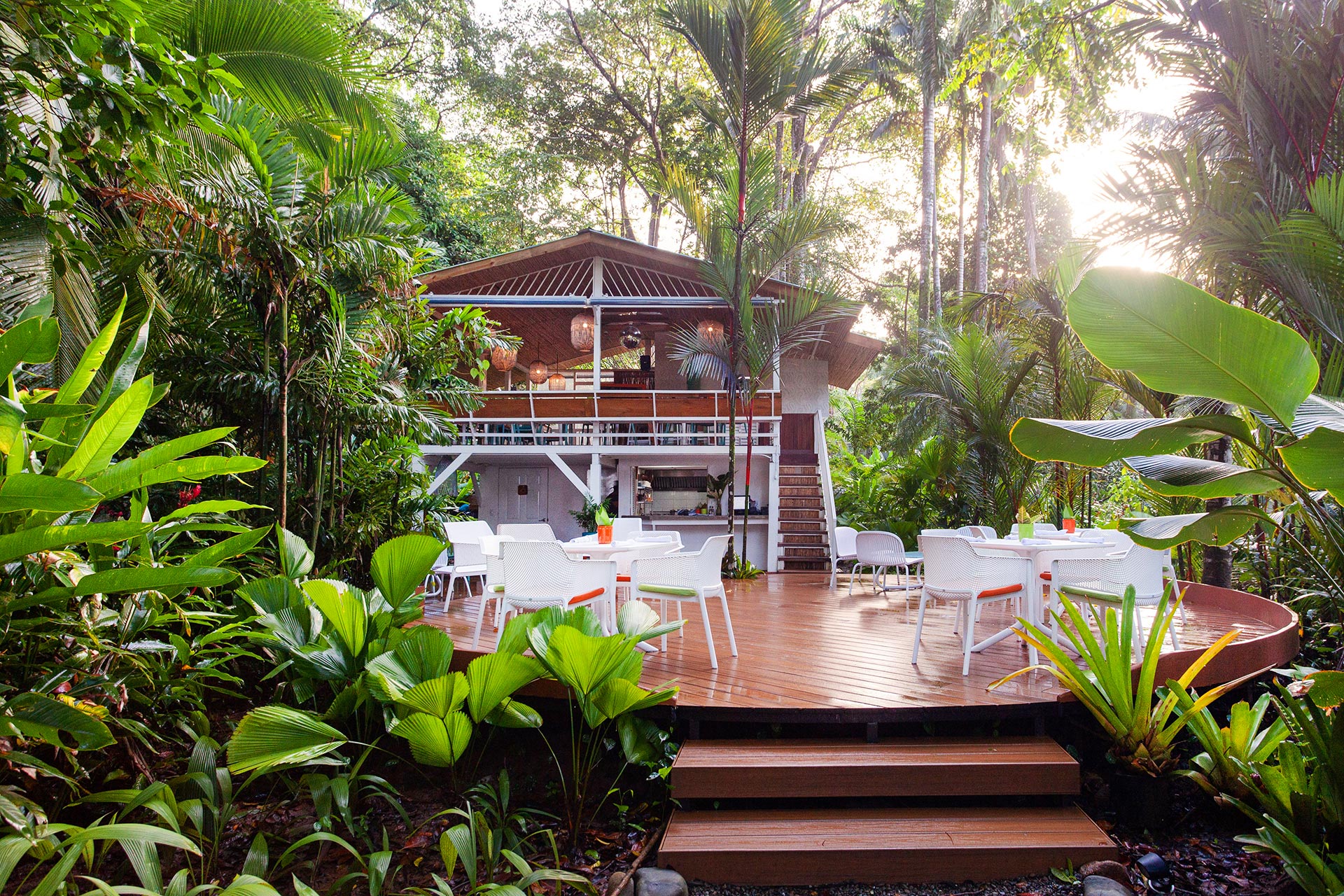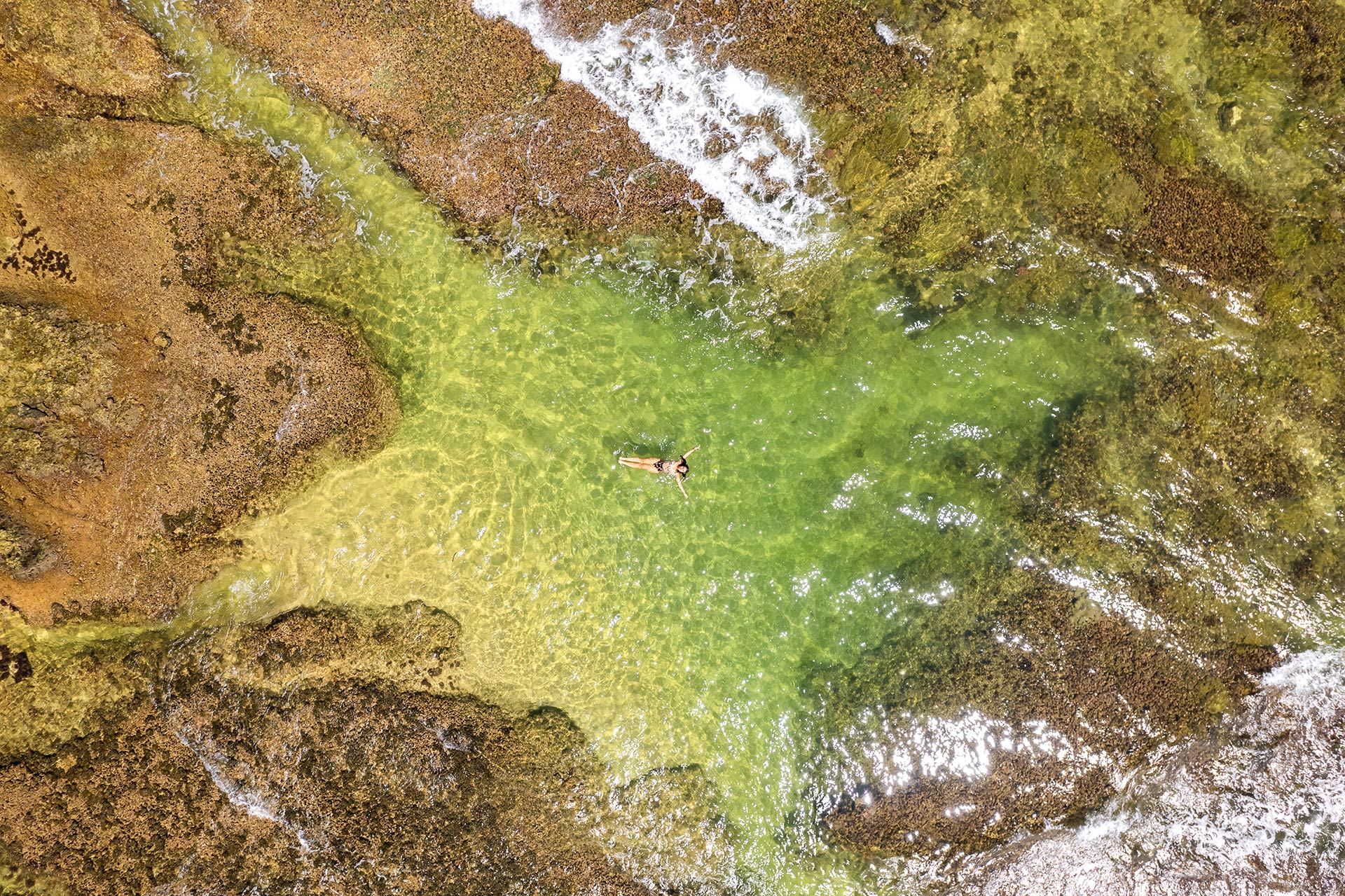
Sustainability is crucial at Cayuga hotels. But you don’t have to worry about that. Here, you get the finest jungle luxury experiences whether you care about the future or not. (Editor’s note: you should definitely care.)
The Cayuga Collection is a series of fantastically luxurious and fantastically sustainable small hotels in Central America. Stay at any of their hotels — three of which, Isla Palenque, Hotel Aguas Claras, and Kura Boutique Hotel, are in our selection — and on your night table sits a 40-page journal chronicling each of their sustainability programs.
We won’t try to list them all here. But suffice to say, while some hotels are just finally phasing them out, it’s been almost 20 years since a Cayuga hotel gave a guest a plastic bottle. It’s been over ten since they introduced sustainably farmed bamboo straws (and launched one gardener’s new career in the process). Perhaps most unique, no Cayuga hotel hires expats — their staffing relies on, and invests in, their local communities.
There aren’t enough hoteliers like Cayuga. As we started this story, we wanted to know why. What makes sustainability so difficult? The first thing we learned: it isn’t.
“Doing sustainability isn’t that hard,” Hans Pfister, founder of the Cayuga Collection, told me one morning. “It’s just common sense.”
Maybe to him. Talking to Pfister, you get the sense that this sustainability veteran has forgotten how easy it is to take short cuts. Within minutes of our conversation, Pfister had referenced the “famous salmon example.” The fame of this anecdote is debatable — but it’s certain proof of how entrenched Pfister, who’s been in hospitality since 1999, is in the game of green. To him, it’s common knowledge that serving salmon in this part of the world is malpractice of the highest order.



That’s because when you’re served salmon in the tropics, it’s usually been caught somewhere across the globe — then frozen and highly packaged to make it to Central America. Restaurants do this simply because salmon is a filet with luxury cachet, despite plenty of delicious local fish available in home waters.
You’ll never find it at a Cayuga hotel. Their places practice strict dock-to-dish, eliminating not just double and triple plastic packaging but transport emissions to boot. And trust us, their restaurants are no less luxurious for their use of local seafood.
If there’s a sacrifice there, Pfister doesn’t see it. Maybe a marketing professional would. After all, plenty of strategy (however obvious Pfister says it is) goes into staying green at each Cayuga property. Compare that to the way each hotel is sold to prospective guests.
“We don’t say, ‘stay with us because we’re sustainable,’” explains Pfister. “It’s the quality of the experience. We want to give you the best vacation possible.” There’s a hint of pragmatism — cynicism, if you dare — to the strategy. Remember: Pfister and Cayuga aren’t new to the game. He’s seen for years what he calls “the say/do gap.”
“Guests say, ‘I want to stay at a sustainable hotel,’ but when it comes to really making the booking, sometimes that’s not quite happening.”
It’s fortunate then that each property under the Cayuga umbrella has plenty more to its appeal. Isla Palenque, on a private island in Panama, is just eight casitas and one villa with access to seven private beaches. Hotel Aguas Claras is a tiny place in Costa Rica, where its founder imported her own artwork and turned the suites and bungalows into something like an art museum on the Caribbean coast. Kura Boutique Hotel, in the same country, is a tropical-minimalist luxury fantasy at the top of a mountain looking over the Pacific.



Before joining the Cayuga umbrella, each was willed into existence by independent owners who dreamed of living and working in the place that invigorated them. Aguas Claras is the product of an artist and her daughter. Kura of a couple, a biologist and an architect. And Isla Palenque is the life’s work of another architect, this one from Chicago, who read Robinson Crusoe and moved to a beach to sleep in a hammock.
The Cayuga Collection was a good fit for these dreamers. If you’ve made it your life’s work to open a boutique hotel in a setting that inspires you, it’d be a karmic hell to watch your dream contribute to its demise. It’d be unconscionable, in places like these, to work under any but the strictest sustainable principles.
And still, Cayuga doesn’t deliver their sustainable message with a semi-truck to the face. They simply let you see it. Facing that kind of commitment up close, you reflect. That’s how Cayuga hopes to make a broader impact.
“If guests take their inspiration from their vacation and make changes in their day-to-day life, that’s when we feel like: okay we did it. You know, we made a difference.” ▪
Book Isla Palenque on Tablet Hotels.
Book Hotel Aguas Claras on Tablet Hotels.
Book Kura Boutique Hotel on Tablet Hotels.




Mitchell Friedman is an editor and social media manager for Tablet and Michelin Guide hotels. He’s been with Tablet since 2018, and wants you to subscribe to our newsletter.

